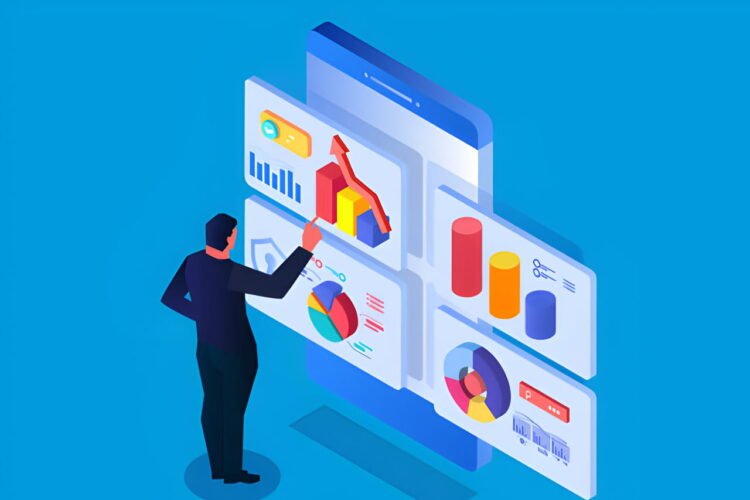
Search Engine Optimization (SEO) is a critical aspect of digital marketing that helps improve your website’s visibility on search engines. Understanding the difference between on-page and off-page SEO and how they contribute to your site’s ranking can significantly enhance your SEO strategy. Here’s an overview of both on-page and off-page SEO ranking factors.
On-Page SEO Factors
On-page SEO involves optimizing individual web pages to rank higher and earn more relevant traffic in search engines. This includes both the content and the HTML source code of a page that can be optimized.
Key On-Page SEO Factors:
- Content Quality
- Overview: High-quality, relevant, and informative content is essential for on-page SEO. Content should provide value to the reader and address their search intent.
- Importance: Search engines prioritize content that is well-written, original, and comprehensive.
- Best Practices: Use relevant keywords naturally, keep the content updated, and ensure it’s informative and engaging.
- Keyword Optimization
- Overview: Proper use of keywords in titles, headers, and throughout the content is crucial.
- Importance: Keywords help search engines understand the topic of your content.
- Best Practices: Use primary and secondary keywords, but avoid keyword stuffing.
- Meta Tags
- Overview: Meta titles and descriptions should be optimized to include relevant keywords.
- Importance: They help search engines understand the content of your page and improve click-through rates.
- Best Practices: Write compelling meta titles and descriptions that accurately reflect the page content.
- Internal Linking
- Overview: Linking to other pages within your website helps search engines understand the structure and hierarchy of your site.
- Importance: It improves navigation, helps with indexation, and passes SEO value to other pages.
- Best Practices: Use descriptive anchor texts and ensure the links are relevant.
- Image Optimization
- Overview: Properly optimized images can enhance user experience and improve page load speed.
- Importance: Search engines can index images, and optimized images can drive traffic from image search.
- Best Practices: Use descriptive file names, alt tags, and ensure images are compressed for faster loading times.
- Page Speed
- Overview: The time it takes for your page to load affects user experience and search rankings.
- Importance: Faster pages lead to better user engagement and higher rankings.
- Best Practices: Optimize images, leverage browser caching, and use a Content Delivery Network (CDN).
Off-Page SEO Factors
Off-page SEO refers to actions taken outside of your own website to impact your rankings within search engine results pages (SERPs). This primarily involves earning backlinks from other websites.
Key Off-Page SEO Factors:
- Backlinks
- Overview: Backlinks are links from other websites to your own. They are one of the most important ranking factors.
- Importance: High-quality backlinks from authoritative sites can significantly boost your search rankings.
- Best Practices: Focus on earning backlinks from reputable sites, guest blogging, and creating shareable content.
- Social Signals
- Overview: Social media activities, such as likes, shares, and comments, can influence your site’s visibility and traffic.
- Importance: While not direct ranking factors, social signals can drive traffic and indirectly improve your SEO.
- Best Practices: Engage with your audience on social media platforms and encourage sharing of your content.
- Brand Mentions
- Overview: Unlinked brand mentions can also impact your SEO.
- Importance: They help build your brand’s authority and trustworthiness.
- Best Practices: Monitor and respond to mentions of your brand across the web.
- Guest Blogging
- Overview: Writing articles for other websites can help you earn backlinks and reach a wider audience.
- Importance: It’s a great way to build relationships and authority in your industry.
- Best Practices: Choose reputable blogs and provide high-quality, valuable content.
- Influencer Outreach
- Overview: Collaborating with influencers in your niche can help you gain more visibility and backlinks.
- Importance: Influencers can help amplify your content and build your brand’s credibility.
- Best Practices: Identify and reach out to influencers who align with your brand values.
Conclusion
Both on-page and off-page SEO are integral to a successful SEO strategy. On-page SEO lays the foundation by optimizing the content and structure of your website, while off-page SEO enhances your site’s authority and trustworthiness through backlinks and social signals. By focusing on both aspects, you can improve your search engine rankings and drive more organic traffic to your site.
Sources
- (https://rankmath.com)
- (https://optinmonster.com)
- (https://www.collaborada.com)
- (https://activatedigitalmedia.com)
- (https://strategynewmedia.com)
- (https://www.searchenginejournal.com)
- (https://backlinko.com)
- (https://nogood.io)
- (https://mangools.com)




